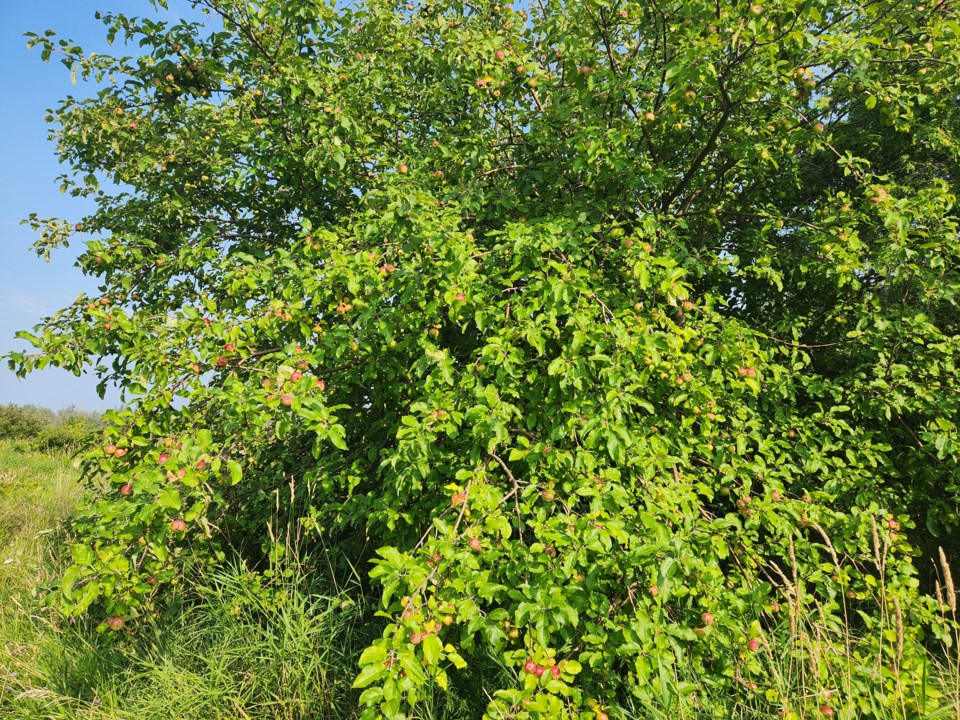The Town of The Blue Mountains has implemented a new process to deal with complaints about abandoned orchards in the community.
At its recent committee of the whole meeting, council received a report from staff outlining the new process that has been implemented to deal with abandoned orchards. The move was applauded by two local apple growers who spoke to council during the public comment portion of the meeting.
Debbie Young, the town’s interim manager of bylaw and licensing, said the town has received seven complaints about possible abandoned orchards this year. She said the town no longer has an abandoned orchard committee and town bylaw officers are not qualified to determine what is an abandoned orchard.
As a result, Young said town staff have engaged a qualified expert to assist with the complaints. The consultant is a former employee of the Ontario Ministry of Food and Rural Affairs.
“At this point, we felt it best to leave it to the expert,” she said.
The new process was applauded by both members of council and local apple growers.
“It’s vital to preserving the orchards,” said Coun. Gail Ardiel. “We need somebody who can help control pests."
Local apple growers Brian Gilroy and Karen Ferri also praised the new process.

Gilroy said the apple growing industry is rapidly transitioning to high-density orchards and this makes the older-style orchards less profitable, which leads to them being abandoned.
“They become a major source of disease and insect infection,” said Gilroy.
Ferri told council that disease and insects from abandoned orchards cause additional pesticide spraying by the owners of active orchards, which leads to an increased carbon footprint.
“Our footprint is increasing in a way that is not positive,” said Ferri. “We really are being handcuffed. We need every support we can get.”
CAO Shawn Everitt said town staff are implementing the new process in order to deal with the problem faster. He also said further changes may be necessary.
“The goal of refining this process is so it can take place a heck of a lot quicker than it has been,” said Everitt. “At the end of the day, we want the issue looked after.”
Everitt said in the future the town could consider taking a more proactive approach on abandoned orchards. He said he envisions a model based on the blitz approach the Ontario Provincial Police uses for commercial vehicle inspections.
The new process for handling complaints about abandoned orchards within The Blue Mountains is as follows:
1. Complaint is received and documented.
2. Bylaw officer attends property and takes photographs.
3. Contact with the independent certified consultant to make arrangements for a visit, which includes review and attending at the property, travel time, provide report and recommendations.
4. Bylaw department would then place an order on any property that is deemed to be an abandoned orchard under the town’s abandoned orchard bylaw.
5. Bylaw department to follow up until completion under order and close file.
6. All information, documents, reports, and photographs to be uploaded into CityView.
7. If the order placed on the property is not complied with by the owner, bylaw officers will take the necessary steps to charge the owner under the Provincial Offences Act, contrary to The Weed Control Act.



